|
 Archive
of Events - 2019 Archive
of Events - 2019
Saturday, 7th December
2019
*** Christmas Party! ***
(at the MacKillop Conference Centre, 50 Archibald St, Lyneham)

Friday,
1st November
2019
Dr Rajiv Singh
(Illawarra Shoalhaven Child, Adolescent and Youth Mental Health
Services, Wollongong)
"Dialogic Practice and Jung's Concept of the Temenos"
(at the MacKillop Conference Centre, 50
Archibald St,
Lyneham)"
Open Dialogue (OD),
developed during the 1980s in Western Lapland, Finland, is both a
therapeutic intervention and a way of organising services.
Embodying systemic family therapy, social constructionism and some
psychodynamic principles, OD has shown some impressive results in
working with people with mental health problems, including reduced
rates of medication use and need for hospital treatment. The central
clinical element of OD is Dialogic Practice. Dialogic
Practice emphasises conversations that allow the therapist(s) to be
“with” the person, as opposed to holding conversations “about” the
person. It involves creating a dialogic space within which
meaningful participation of the person and his/her network can
occur.
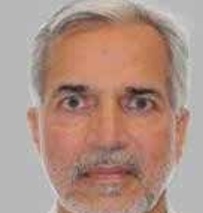
In this talk,
Dr Singh identified
commonalities in this element of dialogic practice with C.G.
Jung's concept of the Temenos – the “inner space deep within us
where soul-making takes place” – where the creativity of healing can
occur.
Dr Rajiv Singh is a Child & Adolescent
Psychiatrist who has trained in medicine and psychiatry in India and
then in Australia. He has been working as a consultant for the last
many years, having practiced in India, Australia and New Zealand. He
is currently in his second year of training in Open Dialogue. His
thesis for the OD course looks at resonances between Dialogic
Practice, free association and meditative practice.
We meet
from 7:30pm for tea and coffee and snacks,
music, discussion and library.
Dr Singh's presentation is at 8pm
for an hour or so, then we break for supper,
then resume for
questions and discussion, finishing at 10pm.
Friday,
4th October
2019
Dorothea Wojnar:
"Carl Jung's Alchemy (not just a matter
of turning base metals into gold!)"
(at the MacKillop Conference Centre, 50 Archibald St, Lyneham 8-10
pm)
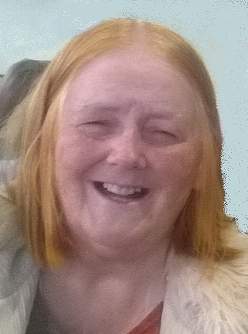 The
ancient practice of alchemy, which thrived in Europe until the
seventeenth century, dealt with the phenomenon of transformation--not
only of materials (ore into gold) but also of the human spirit (self
into Other). Through their work in the material realm, alchemists
discovered personal rebirth as well as a linking between outer and inner
dimensions. The
ancient practice of alchemy, which thrived in Europe until the
seventeenth century, dealt with the phenomenon of transformation--not
only of materials (ore into gold) but also of the human spirit (self
into Other). Through their work in the material realm, alchemists
discovered personal rebirth as well as a linking between outer and inner
dimensions.
Carl Jung first turned to alchemy for personal
illumination in coping with trauma brought on by his break with Freud.
Alchemical symbolism eventually suggested to Jung that there was a
process in the unconscious, one that had a goal beyond discharging
tension and hiding pain. This process created new structures from old
ones, with the self, the alchemical lapis, the philosopher’s stone,
being the ultimate creation.
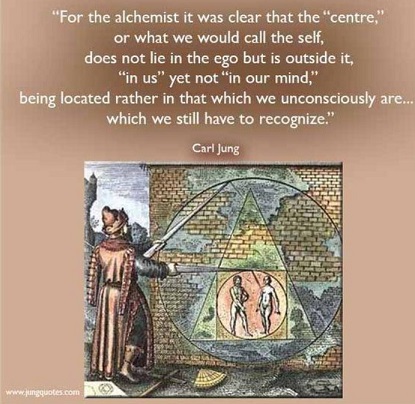 The
Opus (work) of alchemy becomes a symbolic account of the fundamental
process the human psyche undergoes as it re-orients its value system and
creates meaning out of chaos. The opus beginning with the nigredo
(blackening, akin to depression or nihilistic loss of value) in order to
descend back into the manipulable prima materia and proceeding through a
process of spiritual purification that must unite seemingly
irreconcilable opposites (the coniunctio) to achieve new levels of
consciousness. The
Opus (work) of alchemy becomes a symbolic account of the fundamental
process the human psyche undergoes as it re-orients its value system and
creates meaning out of chaos. The opus beginning with the nigredo
(blackening, akin to depression or nihilistic loss of value) in order to
descend back into the manipulable prima materia and proceeding through a
process of spiritual purification that must unite seemingly
irreconcilable opposites (the coniunctio) to achieve new levels of
consciousness.
This presentation was an introduction to
alchemy and respond to the question what we could gain from studying
alchemical symbols.
The presentation was followed by
discussion and work in small groups, where each person was encouraged to
share some of their own journey.
Dorothea is a
Jungian Analyst, Counsellor and Psychotherapist in private practice.
Dorothea has extensive experience as a group leader and therapist across
a range of people and issues and has worked in both a public health
facility as well as in private practice.
We meet
from 7:30pm for tea and coffee and snacks,
music, discussion and library.
Dorothea's presentation is at 8pm
for an hour or so, then we break for supper,
then resume for
questions and discussion, finishing at 10pm.
Four-Week "Fairy-Tale Group"
Facilitated by Dorothea Wojnar
Tuesdays 20, 27 August and 3,10 September 2019
7:30 - 9:30 pm
Venue:
Wesley Uniting Church 22 National Circuit, Forrest ACT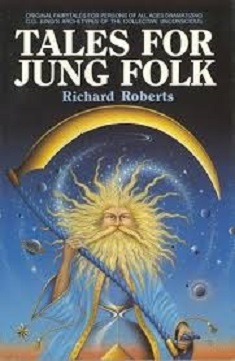
Beginning with the fathers of the field, Sigmund Freud and Carl Jung,
psychoanalysts have turned to fairy-tales in an effort to understand the
human mind. Fairy-tales
are inextricably linked to the work of Carl Jung. The “collective
unconscious” that lies at the core of his work, and which is shared by
all human beings, is revealed through archetypes, forms and symbols
found in fairy-tales.
Fairy-tales
are oral forms of folk tales with moral and ethical aspects, which teach
us how to behave and how to deal with others in the community.
Marie-Louise
von Franz considers fairy-tales as the purest and simplest expression of
the collective unconscious of psychic processes.
Fairy-tales represent the contents of
the collective unconscious, the archetypes.
Fairy-tales offer a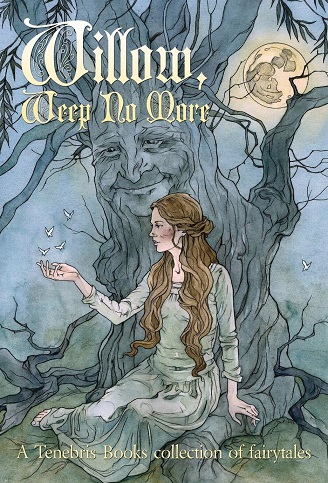 n understanding of
the basic patterns of the human psyche and can guide us through the
individuation process. n understanding of
the basic patterns of the human psyche and can guide us through the
individuation process.
Working with your
favourite fairytale
Participants are asked to bring their favourite tale either one they
have heard and love or a fairy-tale they have written.
We will be experiencing the
fairy-tales through enacting the fairy-tales.
Participants will have the opportunity
to become archetypal characters in the fairy-tale.
This can be a powerful experience as
you become for a short time the witch or the evil king or the divine
child.
Participants will be asked to bring
various props that will help them to become the characters in the tale.
After de-roling, each participant has
an opportunity to share within the closed group about what it felt like
to be in that role and how they experienced the other characters.
The group is confidential, and participants are asked not to discuss
personal material from the group outside the group.
Acting ability is not important,
because we will focus on developing an ability to experience your own
and other’s psyche. Most of us a cted out stories and tales as children -
this is similar to that with two major differences - we become
archetypal characters with intention, and we have an opportunity to
discuss the experience. cted out stories and tales as children -
this is similar to that with two major differences - we become
archetypal characters with intention, and we have an opportunity to
discuss the experience.
Dorothea
is a
Jungian Analyst, Counsellor and Psychotherapist in private practice.
Dorothea has extensive experience as a
group leader and therapist across a range of people and issues and has
worked in both a public health facility as well as in private practice.
For
further information, please contact Dorothea Wojnar on
(0413)
245
835.
Cost:
$40 for the series (Try to attend all four sessions!).
Pay by
cash at the door, or by bank transfer, or by
credit card via
TryBooking
Friday,
6th September
2019
Terry Curtin
"Jung and Meister Eckhart"
(at the MacKillop Conference Centre, 50 Archibald St, Lyneham 8-10
pm)
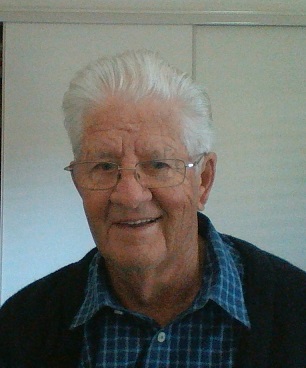 “Only
in Meister Eckhart did I find the breath of life” said Carl Jung.
(“Memories Dreams and Reflections” p87). “Only
in Meister Eckhart did I find the breath of life” said Carl Jung.
(“Memories Dreams and Reflections” p87).
Local Jung Society
member Terry Curtin, BA(Psychology) BTheology, MA(Theology), Diploma of
Transpersonal Counselling, will reflect on how a 13th-century Dominican
theologian/mystic had such a profound impact on Carl Jung. Terry’s
philosophical and theological journey began in 1950. From a tribal Irish
catholic culture he felt called to be a priest. Seminary training was
structured around the “infallible” dogma of the Catholic Church.
His perception of what it means to be human and how humanity is
related to the great and mysterious “Other” has gradually but radically
changed. After 10 “monastic” years he left the seminary. Marriage,
children, and careers in the public service, private enterprise and
voluntary services over nearly 60 years followed. His encounter in about
1980 with Carl Jung’s “Memories Dreams and Reflections” was
transformative.
By 1965 he had a BA degree from Adelaide
University majoring in Political Science and Psychology but Jung was
rarely if ever mentioned. Pavlov’s dogs got more attention. In
Jung he felt the “breath of life”, theologically, psychologically and
spiritually. He continued part time studies in theology, transpersonal
psychology and biblical Hebrew and undertook training in the Tarot and
Kabbalah. He has had a long term relationship with the Jung society. He
first joined the Jung Society in Canberra in about 1985 and later the
Melbourne Jung Society. Returning to Canberra in 2018 he rejoined
the Canberra Jung Society. In a recent conversation with a fellow Jung
society member the question arose, “who the ... was Meister Eckhart?”
Cost:
Jung Society Members
(free),
Guest $15,
Concession $10.
Pay by
cash at the door, or by bank transfer, or by
credit card via
TryBooking
We meet
from 7:30pm for tea and coffee and snacks,
music, discussion and library.
Terry's
presentation is at 8pm
for an hour or so, then we break for supper,
then resume for
questions and discussion, finishing at 10pm.
Friday,
2nd August
2019
Robert Tulip
"Modern man in Search of a Soul"
(at the MacKillop Conference Centre, 50 Archibald St, Lyneham 8-10
pm)
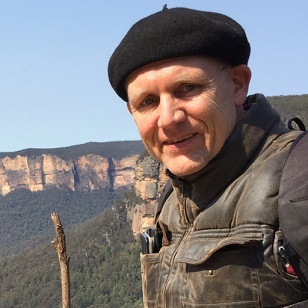 Modern Man in Search of A Soul
is a collection of eleven essays by Carl Jung, published in 1933. The
provocative theme is the clash between modern scientific rationality and
the understandings of human identity that emerge from religious and
spiritual traditions. Modern Man in Search of A Soul
is a collection of eleven essays by Carl Jung, published in 1933. The
provocative theme is the clash between modern scientific rationality and
the understandings of human identity that emerge from religious and
spiritual traditions.
Jung explores the need for soul in psychology,
through topics including his break with Freud, his approach to dream
analysis, psychological types, archaic man, and the spiritual problems
of modern man.
This talk
explored implications of Jung’s analysis of
the soul for philosophy, psychology, politics and religion.
Robert Tulip has
Bachelors and Masters
Honours Degrees in
philosophy from
Macquarie University.
After thirty years
working for the federal
government, he is now
returning to focus on
these intellectual
interests, especially
the philosophical
problems of psychology
and religion.
Cost:
Jung Society Members
(free),
Guest $15,
Concession $10.
And here you can see
text and videos
of Rob's presentation!
We meet
from 7:30pm for tea and coffee and snacks,
music, discussion and library.
Robert's presentation is at 8pm
for an hour or so, then we break for supper,
then resume for
questions and discussion, finishing at 10pm.
Six-Week Dream Group series
Facilitated by Dorothea Wojnar
Six Tuesdays: 18th and 25th June, 2nd, 16th, 23rd and 30th July 2019 7:30 -
9:30 pm.
(in the Vercoe Room, Wesley Uniting
Church, 22 National Circuit, Forrest, ACT)
"The
dream is a little hidden door in the innermost and most secret recesses
of the soul, opening into that cosmic night which was psyche long before
there was any ego consciousness, and which will remain psyche no matter
how far our ego-consciousness extends.
"For
all ego-consciousness is isolated; because it separates and
discriminates, it knows only particula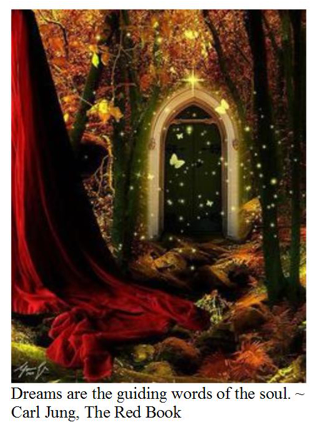 rs, and it sees only those that
can be related to the ego. Its essence is limitation, even though it
reaches to the farthest nebulae among the stars. rs, and it sees only those that
can be related to the ego. Its essence is limitation, even though it
reaches to the farthest nebulae among the stars.
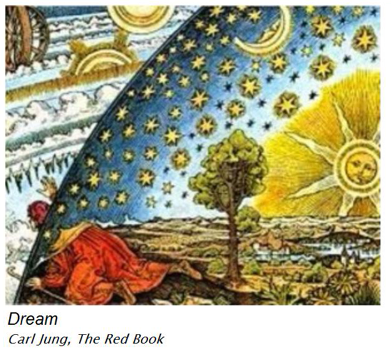 "All
consciousness separates; but in dreams we put on the likeness of that
more universal, truer, more eternal man dwelling in the darkness of
primordial night. There he is still the whole, and the whole is in him,
indistinguishable from nature and bare of all egohood. It is from these
all-uniting depths that the dream arises, be it never so childish,
grotesque, and immoral." "All
consciousness separates; but in dreams we put on the likeness of that
more universal, truer, more eternal man dwelling in the darkness of
primordial night. There he is still the whole, and the whole is in him,
indistinguishable from nature and bare of all egohood. It is from these
all-uniting depths that the dream arises, be it never so childish,
grotesque, and immoral."
(C
G Jung "The Meaning of Psychology for Modern Man" (1933). In CW 10:
Civilization in Transition. pg. 304)
The
group will be facilitated by Dorothea Wojnar. Members of the group are
encouraged to share their dreams and we will be using active imagination
in working with the dreams. Please let Dorothea know if you are planning
to attend.
 Dorothea is a Jungian Analyst, Counsellor and
Psychotherapist in private practice. Dorothea has extensive experience
as a group leader and therapist across a range of people and issues and
has worked in both a public health facility as well as in private
practice. Dorothea is a Jungian Analyst, Counsellor and
Psychotherapist in private practice. Dorothea has extensive experience
as a group leader and therapist across a range of people and issues and
has worked in both a public health facility as well as in private
practice.
For further information, please contact Dorothea
Wojnar on 6292 2014 or
(0413)
245
835.
Dreams are the guiding words of the soul. ~
Carl Jung, The Red Book
Dream Carl Jung, The Red Book
Cost:
$10
Pay by
cash at the door, or by bank transfer, or by
credit card via
TryBooking
We meet
before 7:30 for introductions and catch-up over a cuppa and snacks,
prior to working on the dreams.
Sharing your dreams is not required -
You can enjoy sharing and working with everyone else's!
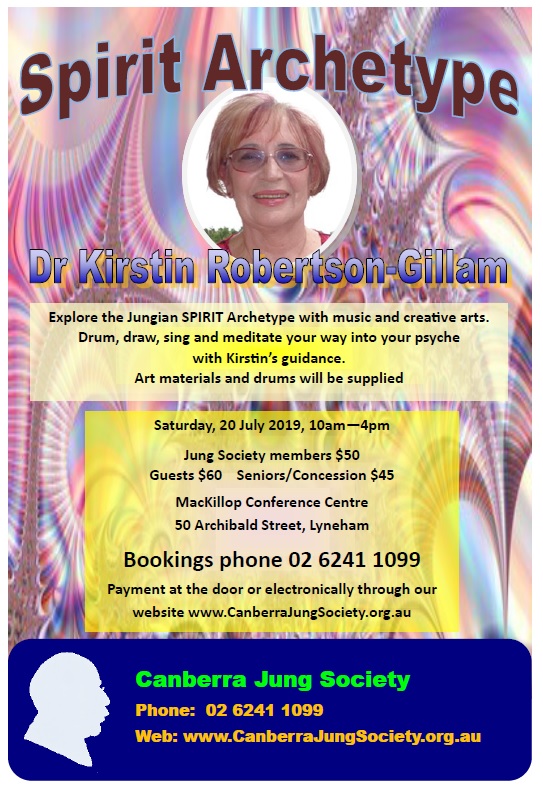
Saturday 20th July 2019 10am - 4pm
Kirstin Robertson-Gillam PhD, RMT, CMPACFA, CMAMTA:
"Mandalas Series 3 of 4: "The Spirit Architype
Mandalas,
Drumming and Singing"
(at the MacKillop Conference Centre, 50
Archibald St, Lyneham)"
( *** Cancelled this year, but
planned for 2020! *** )
Kirstin
continues her series of workshops exploring Jungian archetypes
through the use of music and creative arts. This time it
is the SPIRIT archetype.
The archetype of spirit in the shape of a man, hobgoblin, or animal
always appears in a situation where insight,
understanding, good advice, determination, planning, etc.,
are needed but cannot be mustered on one’s own resources. The
archetype compensates this state of spiritual deficiency by contents
designed to fill the gap.
Jung,
GC (1948). The phenomenology of the spirit in fairytales.
In
The archetypes and the collective unconscious.
9(Part1), 207-254
Drum, draw, vocalise and meditate your way into your
psyche with Kirstin’s guidance.
You will draw several
mandalas and participate in drumming and singing sessions throughout
the workshop. At the end of the day you will be able to
reflect on the meaning for you of those mandalas within the context
of the day’s archetype. Art materials and drums will be
supplied.
For further information about her workshop, please
contact Kirstin
on email
kirstinrg@bigpond.com
or mobile 0409 533 466.
Cost: Jung Society members $50,
Guests $60, Seniors/Concession $45.
Pay by cash
at the door or
bank transfer or by
credit card via TryBooking.
Dr Kirstin Robertson-Gillam is passionate about
empowering people to achieve their potential. She has a
private
practice specializing in communication disorders and issues of
trauma, dementia, Parkinson’s Disease, and general and EAP
counselling. She developed her unique psychotherapeutic approach
using imagery and visualisation, mindfulness meditation, visual
arts, music making and singing from her own research. She underpins
her work with psychological theories and current research.
Kirstin completed a psychology major in her BA along with
ethnomusicology and musicology majors at the University of New
England. She then studied a Master of Counselling at Western Sydney
University followed by research in a Masters degree which focused on
reducing depression in severe dementia with a choir therapy and
reminiscence program. Her PhD is focused on reducing depression in
mid-later life with a community choir therapy program.
You can
contact Kirstin directly:
P: (0409) 533 466
E:
kirstinrg@bigpond.com
W:
www.kirstinrg.com
SPECIAL EVENT
Saturday 19th October 2019 9am - 4:30 pm
Kirstin Robertson-Gillam PhD, RMT, CMPACFA, CMAMTA:
"Mandalas Series 4 of 4: "The Trickster Architype"
(at the MacKillop Conference Centre, 50
Archibald St, Lyneham)"
This is the fourth in our series of four
workshops ...
( *** Cancelled this year, but planned for 2020! *** )
Cost:
Jung Society Members $60,
Concession $50,
Public $80.
Pay by cash or bank transfer or by
credit card via
TryBooking.
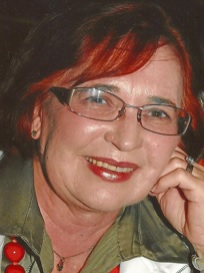
Dr Kirstin Robertson-Gillam is passionate about
empowering people to achieve their potential. She has a private
practice specializing in communication disorders and issues of
trauma, dementia, Parkinson’s Disease, and general and EAP
counselling. She developed her unique psychotherapeutic approach
using imagery and visualisation, mindfulness meditation, visual
arts, music making and singing from her own research. She underpins
her work with psychological theories and current research.
Kirstin completed a psychology major in her BA along with
ethnomusicology and musicology majors at the University of New
England. She then studied a Master of Counselling at Western Sydney
University followed by research in a Masters degree which focused on
reducing depression in severe dementia with a choir therapy and
reminiscence program. Her PhD is focused on reducing depression in
mid-later life with a community choir therapy program.
You can
contact Kirstin directly:
P: (0409) 533 466
E: kirstinrg@bigpond.com
W:
www.kirstinrg.com
Friday 5th July 2019
Dr David Russell
"Shadow Work in Psychotherapy and the
Art of Dying"
(at the MacKillop Conference Centre, 50 Archibald St, Lyneham 8-10
pm)
I began preparing
the material for this talk because the topic has been on my mind for
some time.
I find that most published writings on
the shadow leave me most unsatisfied. And on the matter of dying, well,
it appears to be one of those occasions when our tendency is to avert
the eyes.
Nothing to see here!
Jung’s notion of
the shadow was that it is an archetypal force.
So, my intention is to develop some
potential richness around its archetypal basis.
Psychodynamic
psychology is called psycho-dynamic precisely because it emphasis the
dynamic or energy aspect of the archetype. It’s an archetypal force not
a neutral structure. It is a force that is constituted as a pre-existing
framework ready for action in the world. Thus we can talk of a
primordial predisposition.
Babies don’t come into life as a blank
page. Every baby has a prescribed beginning that is then continuously
shaped by experience.
The archetypal shadow
Perhaps the most
difficult to grasp of all the so-called Jungian archetypes is the
‘shadow’. We humans are drawn toward the ‘light’ and toward the ‘dark’.
The light is a top-of-the-mountain experience. The dark, in contrast, is
a moist, misty valley. One see clearly from on the mountain peak, the
view is stunning and the air is pure. One only sees the very immediate
in the dark valley. Often the mist is so full-on that all that can be
seen is the thick mist itself. It’s so easy to feel lost. The expected
path is barely visible if at all. Dying, as a key aspect of an
archetypal force, is a move toward the ‘dark’.
Our culture is very
light-orientated in that we crave for understanding, insight,
enlightenment. But because the archetypal force lies on the dynamic
spectrum, the more we move toward the light the more our daily living
accentuated the dark.
Ars moriendi,
the classical literature on the art of dying needs to be revisited and
Jung’s shadow work is proposed as a useful vehicle for this task.
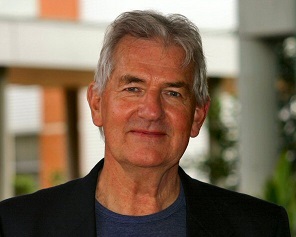
David
Russell
is a past president of the Sydney Jung Society. He completed his
undergraduate and postgraduate studies and research in psychology at the
University of Sydney. Here he was introduced to the writings of Sigmund
Freud (unusual for a Department of Psychology) and developed an ongoing
enthusiasm for the history and philosophy of psychology.
After a
few years in private practice he moved into an academic career, which
culminated in the establishment of the Master of Analytical Psychology
degree at the University of Western Sydney. David has currently returned
to private practice in Sydney CBD.
Cost:
Jung Society Members
(free),
Guest $15,
Concession $10.
Pay by
cash at the door, or by
bank transfer, or by
credit card via
TryBooking
We meet
from 7:30pm for tea and coffee and snacks,
music, discussion and library.
Dr Russell's presentation is at 8pm
for an hour or so, then we break for supper,
then resume for
questions and discussion, finishing at 10pm.
SPECIAL EVENT
Saturday 6th July 2019
Dr David Russell - Workshop:
"Making the Insights of Carl Jung's
'archetypal forces' Useful in
Therpeutic Work"
(at the MacKillop Conference Centre, 50 Archibald St, Lyneham
10am - 4pm)
The focus of the workshop will be Jung’s
notion of ‘soul’.
How soul manifests, demands
attention, and desires deep satisfaction. Archetypal forces make
manifest soul matters; the matter of soul.
A number of
archetypal forces will be referred to with the dominant one being
the move toward the ‘light’ (understanding, explanation) and the
move toward the ‘dark’ (soul-making, dying).
This workshop is
open to all.
While the
therapeutic relationship will be central to the material presented
any relationship including the one we have with ourselves will be
addressed.
The format of the workshop will be a
mixture of presentation and discussion with personal experience
being at the heat of all that is done.
Six hours of
Professional Development Points will be available to psychologists,
therapists and counsellors.

David
Russell
is a past president of the Sydney Jung Society. He completed his
undergraduate and postgraduate studies and research in psychology at
the University of Sydney. Here he was introduced to the writings of
Sigmund Freud (unusual for a Department of Psychology) and developed
an ongoing enthusiasm for the history and philosophy of psychology.
After a few years in private practice he moved into an
academic career, which culminated in the establishment of the Master
of Analytical Psychology degree at the University of Western Sydney.
David has currently returned to private practice in Sydney CBD.
Cost:
Jung Society Members $50,
Guests
$60
Concession $50.
Pay by cash or
bank transfer or by credit card
via
TryBooking.
SPECIAL EVENT
Saturday,
8th June
2019
Two Half-day workshops: "Mandalas for Wholeness"and "Mandalas &
Music"
(at the MacKillop Conference Centre, 50 Archibald St, Lyneham)
Cost:
Morning:
Jung
Society members $40; Guests $50; Concession $35
TryBooking
Afternoon: Jung
Society members $40; Guests $50; Concession $35
TryBooking
Full Day: Jung Society members $50;
Guests $60; Concession $45:
TryBooking
Pay by cash at the door or bank transfer or by credit card
via
TryBooking (as above).
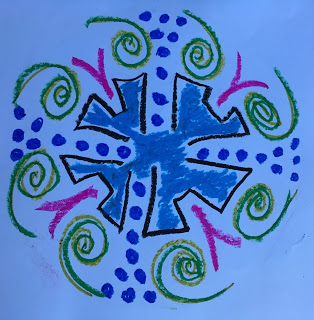 Morning
(9:00 am - 12 noon): "Mandalas for Wholeness"
Catherine Lambert ("Deepwater W.A.")
An introduction to the use of mandalas in our
spiritual journey.
The workshop will commence with a short presentation,
followed by a simple meditation to lead us into creating our own
mandalas. All materials will be provided to create your mandala. At the
conclusion of our time together, participants will be invited to share
their experience of the process and I will offer some suggestions for
working further with the mandalas.
No art experience is necessary.
Simply come with an open mind and the willingness to put aside a couple
of
hours of your busy lives.
Cathie Lambert:
Living in Margaret River, Western Australia, I am currently taking a
leave of absence from ministry as a Uniting Church minister to complete
a PhD through the University of Divinity in Melbourne. My topic is the
beguine mystics of the 13th century and their relevance for women
seeking spiritual independence today. I am also a trained Spiritual
Director and help to train new spiritual directors as part of the team
at Dayspring in Perth.
Deep Water Dwelling is my spiritual
direction business. I provide individual spiritual direction and run
retreats and workshops for groups. I specialise in mandala workshops,
which was my topic for my spiritual direction project and released a
book in early 2018 through Mediacom, titled ‘A Mandala a Month
Workbook’.
I am married with two teenage children. I love
reading, movies, scrapbooking, can never get enough of musical theatre
and could sit by the ocean for hours.
Contact:
www.deepwaterdwelling.com.au
Afternoon (1:00 pm - 3:30 pm): "Mandalas &
Music"
Kirstin Robertson-Gillam
The mandalas of drumming and vocalising with collages.
All drums and collage materials supplied.
Dr Kirstin Robertson-Gillam is passionate about
empowering people to achieve their potential. She has a private
practice specializing in communication disorders and issues of
trauma, dementia, Parkinson’s Disease, and general and EAP
counselling. She developed her unique psychotherapeutic approach
using imagery and visualisation, mindfulness meditation, visual
arts, music making and singing from her own research. She underpins
her work with psychological theories and current research.
Kirstin completed a psychology major in her BA along with
ethnomusicology and musicology majors at the University of New
England. She then studied a Master of Counselling at Western Sydney
University followed by research in a Masters degree which focused on
reducing depression in severe dementia with a choir therapy and
reminiscence program. Her PhD is focused on reducing depression in
mid-later life with a community choir therapy program.
You can
contact Kirstin directly:
P: (0411) 533 466
E:
kirstenrg@bigpond.com
W:
www.kirstinrg.com
Friday,
7th June
2019
Catherine Lambert ("Deepwater W.A.):
"The Mystery and Power of
Mandalas"
(at the MacKillop Conference Centre, 50 Archibald St, Lyneham 8-10
pm)
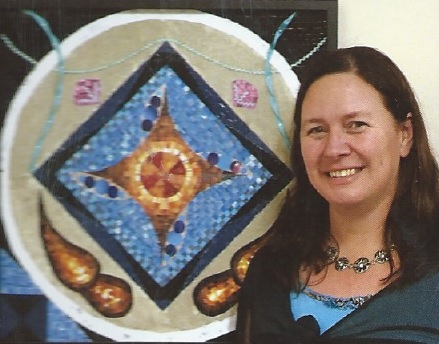 During this talk,
Catherine shared the story of
her own discovery of the mystery and power of mandalas, moving from
initial scepticism to creating a book about their use. During this talk,
Catherine shared the story of
her own discovery of the mystery and power of mandalas, moving from
initial scepticism to creating a book about their use.
She says:
"I
stumbled across the term ‘mandala’ while reading about Hildegard of
Bingen and it sparked my curiosity. Since this time, I have used mandalas
in my personal life and with individuals and groups. Often, people are
surprised by the process of creating a mandala and subsequently find
meaning in reflecting upon their creation, bringing healing, wholeness
and insight. I will share personal stories about my experiences of using
mandalas in my spiritual life and in working with others.
Mandalas are found in many spiritual traditions across our world, but
have really only been accepted in the West through the work of Jung. My
work with mandalas is based on Jung’s claim that the mandala is an
archetype for wholeness and how this relates to our spiritual life. Jung
viewed the mandala as a tool that assisted in the process of
individuation and my passion is walking with people as they grow and
transform whilst engaging in their own inner work. I look forward to
sharing with you the key insights I have gained from facilitating the
creation of mandalas with various groups."
Cathie Lambert:
Living in Margaret River, Western Australia, I am currently taking a
leave of absence from ministry as a Uniting Church minister to complete
a PhD through the University of Divinity in Melbourne. My topic is the
beguine mystics of the 13th century and their relevance for women
seeking spiritual independence today. I am also a trained Spiritual
Director and help to train new spiritual directors as part of the team
at Dayspring in Perth.
Deep Water Dwelling is my spiritual
direction business. I provide individual spiritual direction and run
retreats and workshops for groups. I specialise in mandala workshops,
which was my topic for my spiritual direction project and released a
book in early 2018 through Mediacom, titled ‘A Mandala a Month
Workbook’.
I am married with two teenage children. I love
reading, movies, scrapbooking, can never get enough of musical theatre
and could sit by the ocean for hours.
www.deepwaterdwelling.com.au
Cost:
Jung Society Members
(free),
Guest $12,
Senior $10,
Concession $6.
Pay by
cash at the door, or by bank transfer, or by
credit card via
TryBooking
We meet
from 7:30pm for tea and coffee and snacks,
music, discussion and library.
Dr Singh's presentation is at 8pm
for an hour or so, then we break for supper,
then resume for
questions and discussion, finishing at 10pm.
Friday,
3rd May
2019
Jennifer Hume:
"Embodied Imagination"
(at the MacKillop Conference Centre, 50 Archibald St, Lyneham 8-10
pm)
Embodied Imagination® is a therapeutic and creative way of working with
dreams, memories, physical symptoms of illness and creative ideas in the
arts and science.
Embodied Imagination® is based on Jungian
principles on alchemy and on the work of American archetypal
psychologist James Hillman, who focused on psyche as a simultaneous
multiplicity of autonomous states. Phenomenology, ancient incubation
techniques, complexity theory and neuroscience are integral to this
work.
The Paradigm
All dreams are experienced as embodied
events in time and space. A dream image is an environment in which we
find ourselves.
The first principle of Embodied Imagination® is
to view a dream image as a live environment that surrounds us. Given
this, the dreamer can re-enter the landscape of the dream, or memory and
its images to fully and deeply explore and experience them. Working on
images from this perspective stimulates unfamiliar states of
consciousness and helps to contain them in expanded body awareness.
Working with dreams and memories in this way accesses their
potential for change, healing and creativity.
This talk
outlined the basic principles of Embodied Imagination® and described the
method and its applications.
See all about it:
www.embodiedimagination.com.au
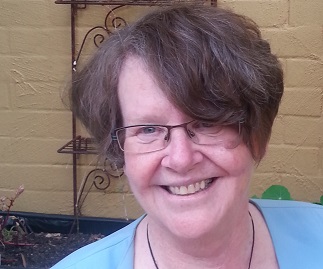 Jennifer
Hume
is a retired counsellor who worked in private practice in counselling
and consulting for community agencies and agencies in the ACT from 1993
- 2018. She was the Director of Lifeline Canberra from 1989 to 1993 and
a part time lecturer in the Counselling Program at the University of
Canberra for 14 years. In 2004, she designed and taught the inaugural
Graduate Certificate in Counselling Supervision, the first general
supervision qualification to be offered in Australia. Jennifer
Hume
is a retired counsellor who worked in private practice in counselling
and consulting for community agencies and agencies in the ACT from 1993
- 2018. She was the Director of Lifeline Canberra from 1989 to 1993 and
a part time lecturer in the Counselling Program at the University of
Canberra for 14 years. In 2004, she designed and taught the inaugural
Graduate Certificate in Counselling Supervision, the first general
supervision qualification to be offered in Australia.
Jennifer
undertook the Sydney based Embodied Imagination® course in 2009 and
graduated in 2012. She has worked with groups and individuals in the
Embodied Imagination modality working on relationship issues, chronic
illness and acute postoperative conditions. She has given presentations
and workshops to both the Canberra and Melbourne Jung societies as well
as Masters of Counselling students at the University of Canberra.
She is currently Membership Liaison Secretary of the
International Society for Embodied Imagination of which she was
inaugural convenor of the Executive Committee.
SPECIAL EVENT
Saturday 6th April 2019 9am - 4:30 pm
Kirstin Robertson-Gillam PhD, RMT, CMPACFA, CMAMTA:
"When Words Fail: Mandalas, Archetypes & Healing"
(at the MacKillop Conference Centre, 50
Archibald St, Lyneham)"
When Words Fail: It is
not uncommon for people to have difficulty expressing what causes
them anxiety and trauma. This is when mandala drawing and vocal
improvisation can provide a pathway for the psyche to express these
issues.
There are several stages associated with mandala
drawing to achieve a therapeutic effect:
Stage 1 Thinking about the problem
Stage 2 Visualising, vocalising and drumming the problem
Stage 3 Mandala drawing
Stage 4 Personal reflection on the mandala and journaling.
These stages will be explained in the workshop,
and you will then have the opportunity to try them out for yourself
under Kirstin’s guidance.
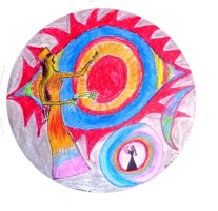 Mandala
Power:
Mandalas were introduced into Western
psychology by Dr Carl Jung. He saw
mandalas as a powerful tool to reach
into the psyche when we find it difficult
to express our feelings and emotions. Mandala
Power:
Mandalas were introduced into Western
psychology by Dr Carl Jung. He saw
mandalas as a powerful tool to reach
into the psyche when we find it difficult
to express our feelings and emotions.
This experiential
workshop will take you
through the pragmatics of combining
mandala drawing, story telling,
vocalisation and journaling for
emotional and psychological healing.
You can bring a personal
issue to the
workshop if you like and explore it
privately throughout the day. Kirstin is
also available for confidential
consultation. So, enjoy the day and let
the process proceed as it will.
Cost:
Jung Society Members $55,
Concession $50,
Public $60.
Pay by cash or bank transfer or by
credit card via TryBooking.

Dr Kirstin Robertson-Gillam is passionate about
empowering people to achieve their potential. She has a private
practice specializing in communication disorders and issues of
trauma, dementia, Parkinson’s Disease, and general and EAP
counselling. She developed her unique psychotherapeutic approach
using imagery and visualisation, mindfulness meditation, visual
arts, music making and singing from her own research. She underpins
her work with psychological theories and current research.
Kirstin completed a psychology major in her BA along with
ethnomusicology and musicology majors at the University of New
England. She then studied a Master of Counselling at Western Sydney
University followed by research in a Masters degree which focused on
reducing depression in severe dementia with a choir therapy and
reminiscence program. Her PhD is focused on reducing depression in
mid-later life with a community choir therapy program.
You can
contact Kirstin directly:
P: (0411) 533 466
E:
kirstenrg@bigpond.com
W:
www.kirstinrg.com
Friday,
5th April
2019
Dr Rae Chittock:
"The Narcissus Myth"
(at the MacKillop Conference Centre, 50 Archibald St, Lyneham 8-10
pm)
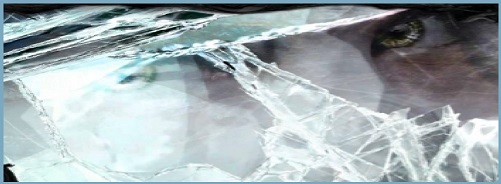
(This image from Sarah Gibson/Rose Draper from 'Re-enchantment’)
On hearing the word Narcissus, does your mind summon an image of a
graceful, beautiful youth who forsakes the world to regard his own
lovely reflection in the mirrored surface of a pond where his
preoccupation causes him to slowly waste away?
The
Narcissus myth is an ancient one. It contains the first prophecy of the
famous blind Theban seer Tiresias. Tiresias offended Hera with his
answer to a question she asked, and in anger she struck and blinded him.
In compensation, her husband Zeus opens the inner eye of Tiresias and
gives him the power to see the secrets of the future. Lirope, a nymph of
the fountain, aware of the power of her infant to capture hearts, asks
Tiresias if this boy with such perfect beauty will be able to survive.
The story of Narcissus has survived many retellings. Tiresias
has died and entered the underworld by the time that Homer writes,
somewhere around 750 – 700 bce, of the visit of Odysseus to Tiresias in
the underworld so we know it was being told before that time.
What does the myth of Narcissus contain that keeps it alive, keeps the
retelling happening? In this presentation we examined the myth and
this question.
Dr Rae Chittock
is a graduate of the first cohort of ANZSJA's CGJ Institute’s Songlines
and Haerenga model of analytic Training. She is interested in cultural
history and its transmission in words and images as different forms of
language. She is drawn to the way individual and collective meanings
shape as well as liberate and explain each other. Rae has a private
practice in Canberra.
SPECIAL EVENT
Friday,
1st March
2019
Canberra Jung Society Inc. Annual General Meeting 2019
at the MacKillop Conference Centre, 50 Archibald St, Lyneham
7-8
pm
We received reports etc, and nominate Office
Bearers for the coming year.
If you are a Jung Society
member, you are welcome to nominate for a specific role, or as a
Committee Member. You would be most welcome to join the Society on
the night, or renew for another year :-)
The regular
Friday monthly
meeting followed at 8pm, as below.
Friday,
1st March
2019
Padma Menon:
"Indian Dance, the Agama Traditions and
Direct Experience as Knowledge"
(at the MacKillop Conference Centre, 50 Archibald St, Lyneham 8-10
pm)
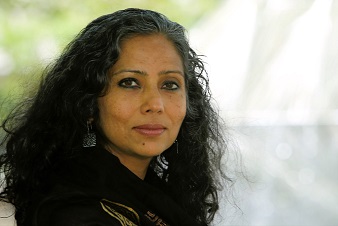 Indian
dance traditions have been framed theoretically by the text Natya
Sastra (estimated between 1st century BCE and 3rd century
CE) which sets out the purpose and the practice of dance as a
pathway to moksha or accessing the Brahman or expanded consciousness
spaces. Indian
dance traditions have been framed theoretically by the text Natya
Sastra (estimated between 1st century BCE and 3rd century
CE) which sets out the purpose and the practice of dance as a
pathway to moksha or accessing the Brahman or expanded consciousness
spaces.
In this talk, Padma Menon will draw on her
experience of studying dance under a traditional teacher who was a
tenth generation dancer in a lineage of priests ordained to perform
dance as part of temple rituals. She will reflect on the ways in
which dance practice was a contemplative tradition where knowledge
through direct experience under structured experiential frameworks
was valued.
The text, like other texts on embodied practices
like the Yoga Sashtra, is thus a signpost, and the practice was the
space of insight and transformation. While Natya Sastra’s position
as the fifth Veda and the breaking of dance lineages in modern times
has tended to align dance with the more intellectual and
philosophical Vedanta traditions, there is much in the practice that
points to more symbolic, ritual and archetypal interpretations (the
Agama approaches).
Padma will include reflections on Carl
Jung’s experiments as detailed in the Red Book, where he also delved
into deliberate invoking of archetypes through personal practice. In
times where intellectual knowing becomes the only recognised form of
knowledge, Jung’s work and traditions such as Indian dance remind us
there are experiences which could be embraced in richer ways through
other means of ‘knowing’.
Padma Menon has over 30 years of international experience as a dancer,
choreographer, teacher and facilitator. She has performed in
hundreds of venues all over the world and created numerous
contemporary and traditional Indian dance productions for high
profile festivals and venues internationally.
Padma
enjoyed a successful career in India performing professionally
as a soloist since the age of nine. In her early twenties she
founded one of Australia’s first professional multicultural
dance companies and established a national and international
reputation for cross-cultural work. She has worked in Europe in
the renowned Korzo Production House as house choreographer and
her work has been showcased in international festivals such as
Cadance and the Holland Dance Festival.
The centre she
founded in India in 2006 was part of the arts activism movement
in India, working closely with human rights and social justice
organisations to raise awareness of issues such as women’s
rights. Padma spent fifteen years studying and performing in
three classical Indian dance theatre styles—Bharatha Natyam,
Kuchipudi and Mohini Attam. Padma also holds post graduate
qualifications in Choreography specialising in Laban Movement
Analysis from the Netherlands. She has also studied contemporary
western dance, yoga and the Indian martial art form of
Kalaripayattu.
www.movingarchetypes.com.au
Friday 1st February 2019
Dr Kirstin Robertson-Gillam PhD, RMT, CMPACFA, CMAMTA:
"When Words Fail: Mandalas, Symbolism, Archetypes"
(at the MacKillop Conference Centre, 50 Archibald St, Lyneham 8-10
pm)
 The
evening lecture covered the various types of mandala
(artistic, therapeutic and sacred). The
evening lecture covered the various types of mandala
(artistic, therapeutic and sacred).
The focus was on the therapeutic mandala and its benefit for
emotional and psychological healing. In his practice, Jung
combined mandala drawing with regular journaling. He proposed
doing a mandala daily and writing down afterwards the feelings
that the mandala induced. We will look at examples of this as
detailed in Jung’s famous Red Book. We also discussed
these mandalas in the light of the archetypal significance and
symbolism.
Dr Kirstin Robertson-Gillam is
passionate about empowering people to achieve their potential.
She has a private practice specialising in communication
disorders and issues of trauma, dementia, Parkinson’s Disease,
general and EAP counselling. She developed her unique
psychotherapeutic approach using imagery and visualisation,
mindfulness meditation, visual arts, music making and singing
from her own research. Her unique speciality is vocal
improvisation psychotherapy.
Kirstin
completed a psychology major in her BA along with
ethnomusicology and musicology majors at the University of New
England. She then studied a Master of Counselling at Western
Sydney University followed by research in a Masters degree which
focused on reducing depression in severe dementia with choir
therapy and reminiscence programs. Her PhD is focused on
reducing depression in mid-later life with a community choir
therapy program. She underpins her work with current
psychological theories and research.
Kirstin regularly
runs workshops on her unique psychotherapeutic approach for
health and psychological wellness, using combined vocal
improvisation and mandala drawing for deeper communication,
along with mindfulness, archetypal symbolism, myths,
story-telling, imagery, visualization, spiritual, creative and
cognitive techniques. Her online course will be available in
mid-2019.
You can
contact Kirstin:
P: (0411) 533 466
E: kirstinrg@bigpond.com
W: www.kirstinrg.com
SPECIAL EVENT
Saturday 2nd February 2019
Dr Kirstin Robertson-Gillam PhD, RMT, CMPACFA, CMAMTA:
"When Words Fail: Mandalas, Symbolism, Archetypes":
A
Workshop (9:30am - 4pm)
(at the MacKillop Conference
Centre, 50 Archibald St, Lyneham) This experiential workshop
took us
through the pragmatics of combining mandala drawing,
vocalisation and journaling for emotional and psychological
healing. We were provided with a workbook, A4 paper to draw
mandalas and crayons. No artistic or singing skills
were required.
* 9:30 am Opening / Introductions
* 10:00 am Vocalisation and mandala drawing
(Tea break included)
* 12 noon Lunch
* 1:00
pm Myth telling and archetypes
* 2:30 pm Break
* 3:00 pm Myths, Imagery and Visualisation
* 4:00 pm
Close
Cost: $60 (Jung Soc.
Members: $55,
Concessiom: $50)
Dr
Kirstin Robertson-Gillam
is passionate about empowering people to achieve their
potential. She has a private practice specialising in
communication disorders and issues of trauma, dementia,
Parkinson’s Disease, general and EAP counselling. She developed
her unique psychotherapeutic approach using imagery and
visualisation, mindfulness meditation, visual arts, music making
and singing from her own research. Her unique speciality is
vocal improvisation psychotherapy.
Kirstin
completed a psychology major in her BA along with
ethnomusicology and musicology majors at the University of New
England. She then studied a Master of Counselling at Western
Sydney University followed by research in a Masters degree which
focused on reducing depression in severe dementia with choir
therapy and reminiscence programs. Her PhD is focused on
reducing depression in mid-later life with a community choir
therapy program. She underpins her work with current
psychological theories and research.
Kirstin regularly
runs workshops on her unique psychotherapeutic approach for
health and psychological wellness, using combined vocal
improvisation and mandala drawing for deeper communication,
along with mindfulness, archetypal symbolism, myths,
story-telling, imagery, visualization, spiritual, creative and
cognitive techniques. Her online course will be available in
mid-2019.
You can
contact Kirstin:
P: (0411) 533 466
E:
kirstinrg@bigpond.com
W: www.kirstinrg.com
Canberra
Jung Society
is a non-profit
organisation,
which aims to provide a contact for people interested in the psychological
insights of Carl Gustav Jung.
Through monthly meetings, workshops, other activities and our library,
we seek to help people to understand their own inner journey and the world
today –
from a Jungian perspective.
PO Box 554,
Dickson, ACT 2602.
Updated by Robert James 31st
December 2019
<-Home
|
|
|
|